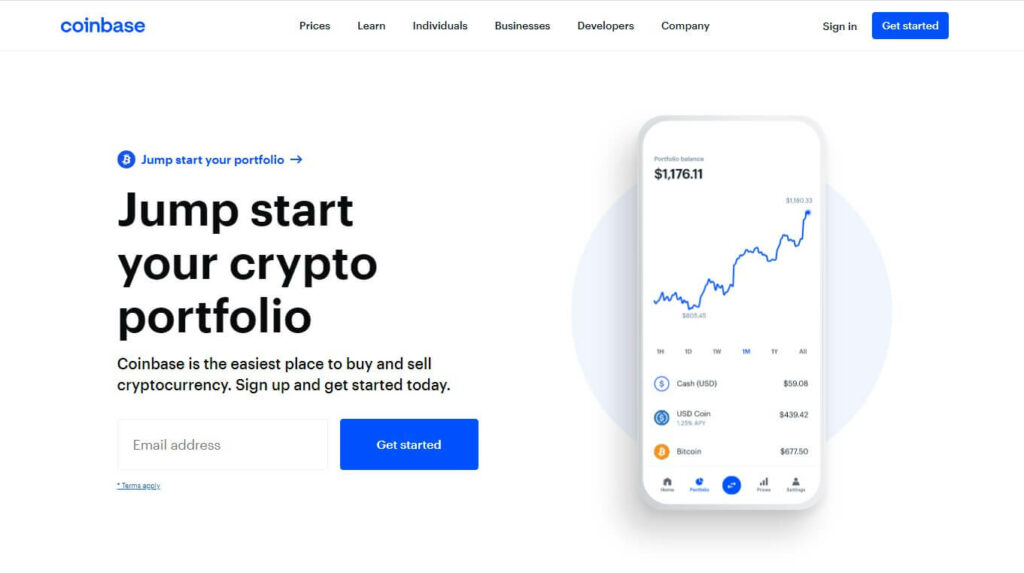The blockchain was never meant to discriminate against age — if you’re old enough to understand decentralized investments, you’re welcome to join the game. In this decade of existence, the crypto scene has noticed a range of teenage crypto millionaires. The Ethereum creator Vitalik Buterin himself was a teenager when he felt the blockchain magic and left school to build an empire.
From a more general perspective, millennials and zoomers are showing a strong bullish attitude toward digital currency, making up 94% of the total number of crypto buyers. This shouldn’t come as a surprise — the generation of future investors has been born and raised online. They have all crypto opportunities in their hands, which wasn’t the case with the traditional stock market — reserved for a narrow group of privileged individuals.
However, while the Bitcoin blockchain won’t ask you for an ID, services that facilitate its purchase will. The leading players in today’s crypto scene are centralized cryptocurrency exchanges (CEXs) that operate like any other regulated virtual retailer. These settings can be a dealbreaker if you’re underage.
For that reason, we’ve dug up a bit deeper into the Canadian crypto landscape with a focus on the age limit.
Can I Buy Bitcoin If I Am Underage?
It isn’t impossible for minors to make a Bitcoin purchase — it all depends on the individual crypto exchange policy. However, even if the exchange doesn’t impose any age restrictions, beginners are entry-level buyers using credit/debit cards or bank accounts, which can’t be held and managed independently by a minor. In addition, you can’t trick a crypto exchange that restricts access to 18+ traders. These regulated marketplaces require detailed ID verification that includes submitting government-issued documents and utility bills.

However, the crucial factor for minors being able to buy BTC is local regulation and classification of cryptocurrency. While some countries lack a specific framework on crypto, Bitcoin and other digital assets are considered securities in Canada. This means that the same rules for bonds, stocks, and other exchange-traded assets apply in the crypto sphere.
Canadian underage teenagers can’t open a trading account for exchanging stock assets without a formal or informal trust fund, approved by a parent, grandparent, or an official guardian until of age. The age of the majority in Canada is 18, regardless of the province of residency.
Where Can Minors Buy Bitcoin?
However, as implied at the beginning, new kids from the block are nowadays well-prepared for virtual existence and find their ways to invest in Bitcoin with or without their parents’ support. To understand the rules betters, we’ll go through the specific age regulations of all reliable Bitcoin marketplaces across Canada.
Cryptocurrency Exchanges
Cryptocurrency exchanges have been the major marketplace for buying, selling, and trading bitcoins. Canada is a crypto-friendly environment where you can find plenty of both home-based and international exchanges adjusted to the local payment system and regulatory frame. This is what some of them impose as a minimum age limit.
Bitbuy
Bitbuy is a top-rated Canadian exchange that allows users to buy Bitcoin and other dominant altcoins in exchange for CAD. It features an exceptionally user-friendly platform offering fiat transfers through bank and wire transfers, Electronic Bank Transfer (EFT), and Interac eTransfer. Bitbuy is a FINTRAC-registered Money Services Business in the category of Virtual Asset Service Provider and works in full compliance with local AML/CFT practices. To qualify for Bitbuy, you must be at least 18 years old.

Binance
Binance is a super-star international exchange that has been holding a champion’s position in the trading volume market cap since its launch in 2017. The popularity of Binance lies in its ability to offer a vast variety of trading services with low fees. This includes an extensive spot market, crypto derivatives, a separate peer-to-peer (P2P) platform, an over-the-counter (OTC) desk, and many more.
Based on the security standards, Binance is a safe destination for trading crypto. However, the exchange has a history of regulatory disputes with several countries, including Canada. Fortunately, it gained an MSB license in September 2021 and now works as a legally registered entity in the territory of Canada.
Also, Binance has recently changed the KYC (Know Your Customer) policy and now requires verification for each new user, which wasn’t the case before 2021. Namely, Binance would allow you to register on its platform without going through KYC and trade with a set of restrictions. This meant that underage users could more easily try their hands at crypto trading, despite withdrawal and trade size limits. As of now, you need to be at least 18 or of legal age to create a Binance account.
Coinbase
Coinbase has always been very strict when it comes to the implementation of regulatory norms. It’s a world-renowned crypto exchange, successfully operating since the earliest Bitcoin days. The exchange is regulated by the New York State Department of Financial Services and imposes full KYC before landing on its platform.
Interestingly, Coinbase didn’t impose any age restrictions until 2017. After changing the rules, all existing accounts of minors were required to remove funds from their exchange wallets before closing their accounts.

As you can notice, you’ll need parents’ support for all regulated crypto exchanges where you can buy Bitcoin and other mainstream coins like Ethereum (ETH), Bitcoin Cash (BCH), Litecoin (LTC), and Dogecoin (DOGE) on a retailer level.
Peer-to-Peer (P2P) Crypto Exchanges
Until recently, P2P exchanges were trading heaven for those who favour anonymity. They use an operational model that is different from traditional CEXs, which allowed P2P markets to delay the implementation of regulatory frameworks on their platforms.
Namely, P2P exchanges don’t facilitate the payment between participants, enabling users to communicate with each other as individuals. In simplest terms, buyers are browsing for sellers who offer a package suitable for their needs and vice versa. After they found each other, participants execute the transaction on their own yet, they can rely on the exchange for support, which has built-in escrow mechanisms for users’ security.
This trading approach opens room for unlimited payment methods — bank transfers, credit cards, PayPal, cold cash, and even Amazon gift cards — and as such, doesn’t have control over the participants’ age.
However, those days of freedom are already gone since P2P exchanges have been put in the same basket as all other money transmitters in the past few years. For example, the registration on one of the most popular P2P destinations, LocalBitcoins, comes with KYC verification and hence, a strict minimum age limit of 18 years.
There are some P2P exchanges scattered worldwide that are wisely managing the age-limit handicap. For instance, the UK-based Solidi does officially accept young people but with a specific set of conditions — anyone under the age of 18 who wants to trade must contact them first.
Bitcoin ATMs
Similar to regular ATMs, Bitcoin ATMs or BATMs are a time-saving option. However, unlike traditional machines where you can withdraw fiat currency using your debit or credit card, BATMs enable you to buy Bitcoin using cash without exposing sensitive bank information. Yets, you still need to complete ID verification for large-scale purchases before initiating the purchase process.

In comparison to cryptocurrency exchanges, both the verification and the transfer itself will be done much faster and your Bitcoin or fraction of Bitcoin will be sent to your Bitcoin wallet almost instantaneously. The transaction fee can reach up to 10%, which is much higher than an average transaction fee. However, the buy-as-you-go system has turned out to be worth an extra penny. You can track down all available Bitcoin machines across Canada on CoinRadar.
A Few Words Before You Go…
As you can see, tightened government regulations in the crypto industry don’t correlate with the core principles of the blockchain. While real-life identity is an irrelevant variable on the blockchain, financial regulatory institutions insist on having insight into customers’ backgrounds for security purposes. This setup prevents young investors from building and managing an independent crypto portfolio.
However, this shouldn’t discourage youngsters from exploring decentralized markets. Modern parents are very likely to be supportive when it comes to crypto investments since their generation bitterly regrets missing the early Bitcoin opportunities. Regulated marketplaces are still the best choice for making your first Bitcoin move, even though they require direct parents’ guidance. Don’t feel voiceless — it won’t last for long.

